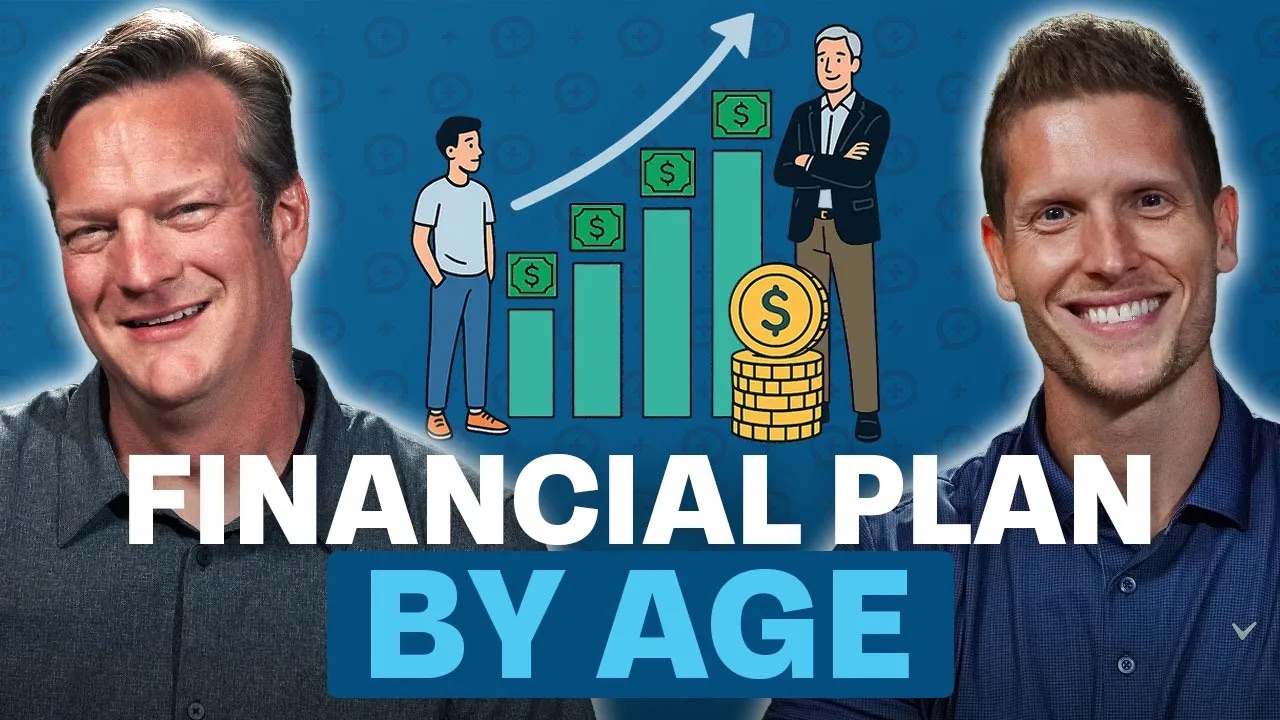We have a question. She says, "I'm worried about the short-term market swings as the government negotiates a debt ceiling deal. Should I take my money out of the market or move it around just until all of this blows over?"
Man, this is such a good question because we get this all the time. One, we just did a show recently on the debt ceiling, so Ashley, I would encourage you, if you've not checked that out, go check that out. Maybe we can drop a link to that in the chat. But it's interesting, there's always something, right? There's always something new coming, there's always something scary out there, there's always something frightening. And it never fails, we, being the logical, rational creatures that we are, come up with this idea that, you know what, I'm just going to wait till things get a little bit better. I'm gonna go to cash, I'm gonna sit on the sidelines, and then this thing will go away. And then not only will I get out at the perfectly right time, I'm gonna have the wherewithal to get back in at the perfectly right time again.
So I want to make two decisions, and I'm going to do them with just precision accuracy. I don't know that that's the way that it actually works. And this is always the thing that I tell people when they pose this question to me, "Hey, I think I want to go sit on the sidelines for a while." And I said, "Okay, so let me get this right. You're telling me one of two things. You're going to sit on the sidelines, and then the market's going to recover and it's going to come back. It's going to be awesome, and you're going to be really happy buying in 20% higher than it is now?" "Oh no, no, no, I don't do that. That doesn't make sense." "Okay, then let me do this. The market's going to continue to go down and things are going to get scared, and the market's going to fall 20%, and while you're scared of investing now, you think that after another 20% drop, then you're going to be excited about investing?" "Oh no, no, no, I'll probably be pretty scared." You are, as an emotional human being, not setting yourself up for success if you're trying to bounce in and out.
So the question is, "Okay, I'm worried about the short term, I'm worried about the debt ceiling. Should I get in, get out, or should I stay on the sidelines?" In my experience, I do not believe that that is a prudent strategy. I think it was Peter Lynch who said, "More money has been lost trying to avoid the next downturn than just riding through the next downturn," and I think that holds true. I do think it is something, though, that you can take some emotional inventory of yourself. There's nothing wrong with it. I always tell brand new associates, as soon as we hit volatility or a bear market, I say, "Bottle up how you're feeling right now because this will serve you well for the rest of your investing life." If you can start noticing what your gut reactions are, or your sleepless nights, those are blind spots, those are concerns you should have that you need to figure out how to get under control. How do I know what I'm experiencing so I can learn how to not be an emotional creature, but actually more of an analytical and goals-driven person in the future? So there's nothing wrong with step one, to kind of just take an inventory of how you feel. What does that mean?
And that leads to the second thing. I do tell people, look at your financial plan. Do you have a plan? Are you doing this by gut? Because if you're doing it by gut, your gut will fail you in a lot of ways. But if you do it by a plan, you're very purposeful with your planning. And the fact that it's goals-based, it's driven by how many years until this goal is needed, your risk profile, your desires for this money. If you can check that your allocation to the goals and the overall metrics of your plan, I have no problem with volatile moments, especially when the market's not getting crushed. Right now, it's just kind of a gut check that you've started having a little bit of itchiness that maybe you're not allocated right or you're not... Nothing wrong with that as long as it's purposeful and now aligns you to your goals. Be purposeful with that planning. That's the second thing I wrote down.
The third is just go ahead and use this moment to be purposeful also on educating yourself because this is something, I want you to be better in the long term. And here's the challenge for you. I want you to go to moneyguy.com resources. We have tons of free stuff. If you just go through and start going through every one of our free deliverables, free resources, and there's an education, we have the
Financial Order of Operations, which I'll hold up. We even have, you're gonna get so excited because in addition to this, the
Wealth Multiplier, we're gonna have the
Wealth Multiplier For Young Savers. So you're bad, man. I got a kid. I got a kid that I can start saving when they're five years old, you know, $21 a month, and they'll be a millionaire, or $42 a month. We have all this out there on moneyguy.com resources. You'll go get educated, and I think you'll be better for it because the next time you have volatility, you'll be like, you know what, I've got a plan. I've been here. I've bought. I took that emotional inventory. I'm ready to rock and roll and start building some wealth.













